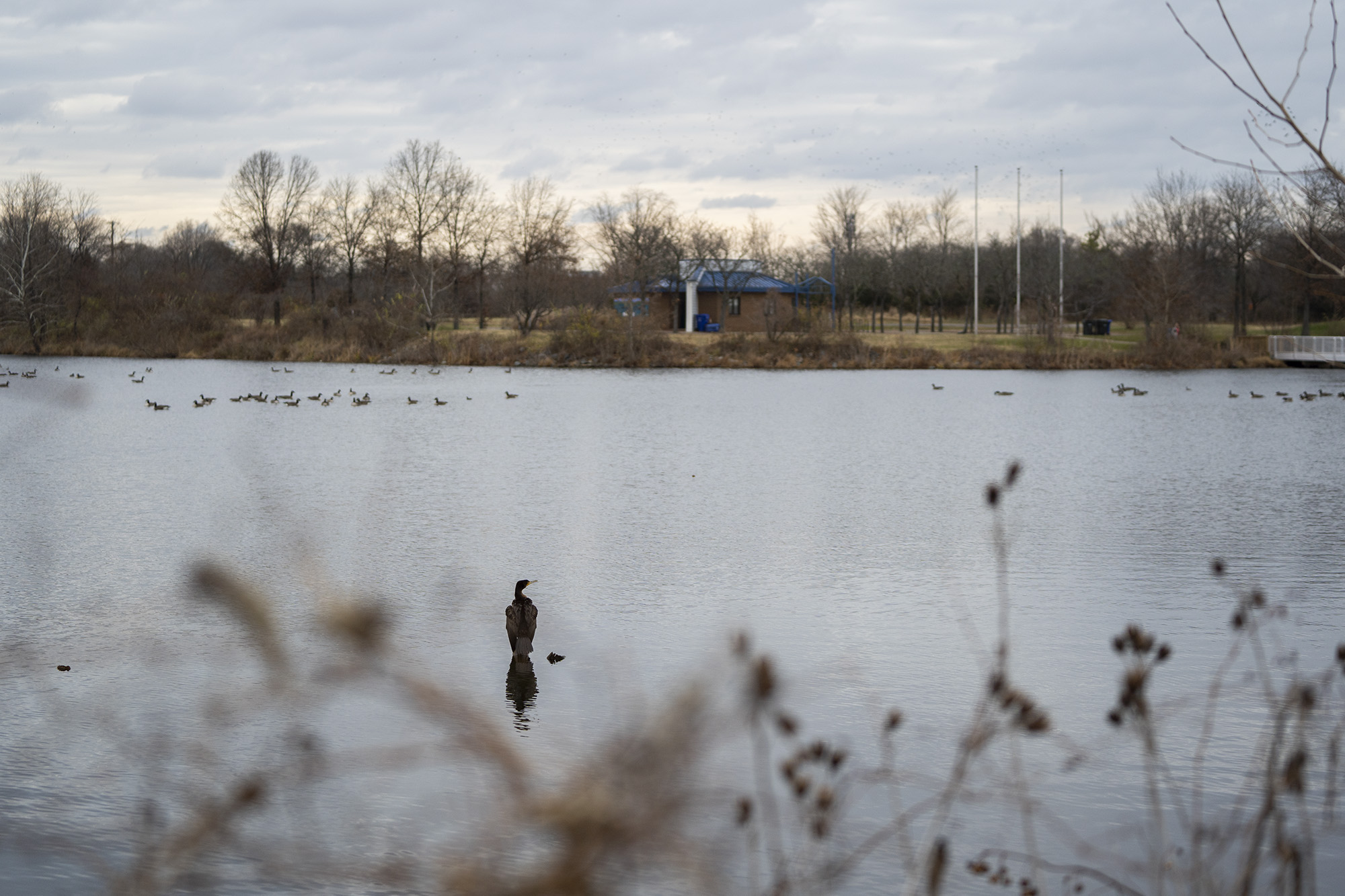Views expressed in opinion columns are the author’s own.
I woke up to the sound of a dumpster being slammed against the ground at a construction site across the street. Good morning College Park!
The sounds of cars, heavy machinery and people screaming for whatever reason flooded my ears as I walked to class. My normal path was blocked by a construction fence guarding some new development on campus that I wished could be built a bit quieter. That’s all I want right now — quiet. Our campus needs a calm outdoor space to bring students some peace amidst the chaos of construction.
We need an oasis of calm. We need a duck pond.
Stay with me, I’ll explain.
Living near green spaces can improve mental health and encourage physical activity. Just look at Washington Quad and McKeldin Mall on a sunny spring day on campus. Like a scene straight out of a coming-of-age film’s end credits, people smile and bask in the daylight, enjoying each other’s company.
There is a noticeable difference between traversing Washington Quad and the gray, lifeless concrete slab between Pyon Chen Hall and the Yahentamitsi Dining Hall. The currently-green spaces on campus provide some semblance of peace and quiet, which is necessary for maintaining a little sanity.
The campus, however, shouldn’t just be for people.
As I write this outside of the Stamp Student Union, there’s a faint noise coming from above. A bird perched on top of the building is singing, but can’t be heard over the roar of a passing excavator. I wonder, what are our green spaces to the creatures that share our campus?
We enjoy short, manicured grass for our picnic blankets and Spikeball nets, but it’s not natural. Our human-centric quads do not benefit the rich ecosystem present around this campus, and the university is taking notice.
In March, a bill passed through the SGA supporting the university’s designation as a Bee Campus USA affiliate of The Xerces Society for Invertebrate Conservation. This means the university’s administration would prioritize initiatives that benefit pollinator species, 40 percent of which could face extinction due to habitat loss in coming years.
All forms of life on campus rely on pollinators to survive and grow. Over 85 percent of flowering plants need bees in order to aid reproduction, and I don’t want to imagine this campus without its flowers. When university administrators approved the SGA’s measure, they officially committed themselves to maintaining healthy ecosystems throughout campus.
This campus’ concrete-heavy development in recent years, however, sends the opposite message. If administration is truly committed to its ecosystem and environment, they will develop more natural spaces for students and pollinators to enjoy together. A perfect package for all these criteria is a pond.
Man-made ponds are fixtures of college campuses throughout the world, serving as places to calm down and enjoy the scenery while also providing utility for university science departments. Each of the 10 most beautiful college campuses, according to Best College Reviews, contain some sort of pond, lake or stream. Maryland fails to crack that list’s top 100.
Lake Artemisia certainly exists, but it’s a fair distance away from campus and thus is inaccessible for pollinators here and unnoticed by people strolling through the university. Sure, we’ve got that stream on the border of North Campus, but it’s also not the most accessible. A few prime locations for this new pond are the new Marshall Hall fields, the Chapel Field, Engineering Field and Leonardtown development.
When hustling around campus, wouldn’t it be nice to have a place to sit for a few minutes and feed some birds? Laying a picnic blanket and hanging out around campus would be enhanced by the sight of ducks and the feeling of a gentle breeze passing over a pond.
In The Sopranos, a TV show filled with animal-based symbolism, ducks are viewed as a symbol of freedom. Tony Soprano watches the ducks fly away from his backyard and envies their ability to live in a complete state of detachment from the burdens of human life. I don’t know about you, but I could definitely use some detachment on the way back from failing a test. The benefits of this, however, aren’t just for humans to enjoy.
A pond would attract and maintain habitats for a variety of plants, animals, birds and insects. Yes, insects are annoying, but they are vital for the ecosystem that this university just committed to maintaining. And if mosquitos get on our nerves, we can always just install a fountain to prevent standing water.
No amount of ducks, ponds, green spaces or bees will prevent students from being woken up by construction equipment every day, but they could shift the tone of our campus’ development.
Instead of rampant expansion, the university could begin prioritizing the health of what this campus already has: of students, the land and the little creatures who make it all possible.
Joey Barke is a sophomore government and politics and journalism major. He can be reached at joey@terpmail.umd.edu
CORRECTION: A previous version of this column misstated that the SGA passed a bill supporting this university’s designation as a bee-certified campus. The bill supports this university’s designation as a Bee Campus USA affiliate of The Xerces Society for Invertebrate Conservation. This column has been updated.



